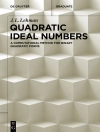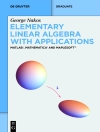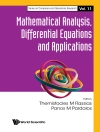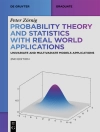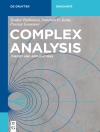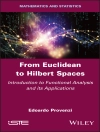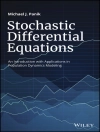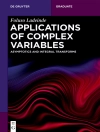In measure theory, a familiar representation theorem due to F. Riesz identifies the dual space Lp(X, L, λ)* with Lq(X, L, λ), where 1/p+1/q=1, as long as 1 ≤ p<∞. However, L∞(X, L, λ)* cannot be similarly described, and is instead represented as a class of finitely additive measures.
This book provides a reasonably elementary account of the representation theory of L∞(X, L, λ)*, examining pathologies and paradoxes, and uncovering some surprising consequences. For instance, a necessary and sufficient condition for a bounded sequence in L∞(X, L, λ) to be weakly convergent, applicable in the one-point compactification of X, is given.
With a clear summary of prerequisites, and illustrated by examples including L∞( R n) and the sequence space l∞, this book makes possibly unfamiliar material, some of which may be new, accessible to students and researchers in the mathematical sciences.
Cuprins
1 Introduction.- 2 Notation and Preliminaries.- 3
L
∞ and its Dual.- 4 Finitely Additive Measures.- 5 G: 0-1 Finitely Additive Measures.- 6 Integration and Finitely Additive Measures.- 7 Topology on G.- 8 Weak Convergence in
L
∞(X, L, λ).- 9
L
∞* when X is a Topological Space.- 10 Reconciling Representations.- References.- Index.
Despre autor
John Toland FRS is a mathematical analyst who worked in nonlinear partial differential equations and served as Director of the Isaac Newton Institute for Mathematical Sciences in Cambridge (2011-2016). He was awarded the London Mathematical Society Berwick Prize (2000) and the Royal Society Sylvester Medal (2012).



